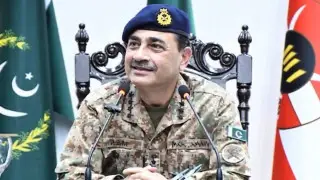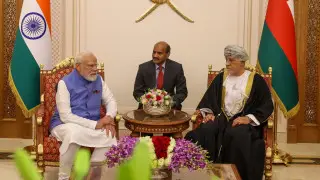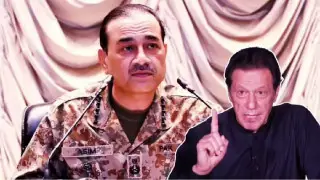
Hasina was forced to step down following massive protests against her government's controversial quota system (X)
In a dramatic turn of events, Sheikh Hasina resigned as Prime Minister of Bangladesh and fled the country on Monday, following weeks of intense protests that claimed over 300 lives. Hasina's departure marks the end of her 15-year rule, which began in 2009 after she previously held office from 1996 to 2001. As the country grapples with the aftermath, questions arise about her future.
According to reports, Sheikh Hasina is seeking refuge in London. Her son, Sajeeb Wazed Joy, stated that she will not be making a political comeback, expressing that she is "deeply disappointed" by the uprising despite her efforts for Bangladesh's betterment. Joy, who served as an official advisor to Hasina until her resignation, told a British public broadcaster that she had been contemplating resignation since Sunday and left the country due to family pressure.
"She has transformed Bangladesh from a failing state to one of Asia's rising tigers," Joy remarked. He defended the government's response to the protests, highlighting the violence faced by law enforcement. "You've had policemen beaten to death—13 just yesterday. So what do you expect the police to do when mobs are beating people to death?" he said.
Reports from local media indicate that Hasina was forced to step down following massive protests against her government's controversial quota system, which reserved 30 percent of government jobs for relatives of veterans from the 1971 War of Independence. Upon arriving at Hindon airbase in Ghaziabad, Hasina met with National Security Advisor (NSA) Ajit Doval to discuss the current situation in Bangladesh and her future plans. The Indian Air Force has placed its personnel on high alert in the eastern sector in light of these developments.
External Affairs Minister S. Jaishankar briefed Prime Minister Narendra Modi on the political situation in Bangladesh, emphasizing the need for vigilance. Meanwhile, in Bangladesh, the President has announced the release of former Prime Minister and main opposition leader Khalida Zia, a significant move in the country's shifting political landscape.













Copyright © 2025 Top Indian News
